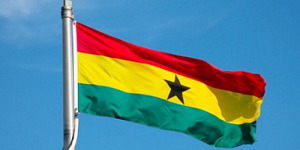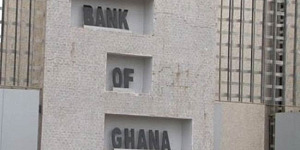Ghana’s inflation figure for June 2024 fell to 22.8%, the country’s lowest inflation figure since April 2022.
In May, Ghana’s inflation dropped to 23.1%, and the country’s inflation has been on a downward trend since the start of 2024.
On a month-to-month basis, Ghana’s inflation rate in June 2024 was 2.9%, down from May’s 3.2%.
According to information from the Ghana Statistical Services, the country’s food inflation rate in June was 24%, appreciating from 22.6% in May 2024.
The country’s inflation rate was only 0.3 percentage points above the 22.5% level projected by Bloomberg economists for June 2024.
Rate cuts in Ghana
As the country’s inflation rate declined through Q4 2023, the Bank of Ghana (BoG) decided to loosen its monetary policy, as it cut its policy rate from 30.00% to 29.00% in January 2024.
After making the move, the country’s inflation declined slightly in February 2024 to 23.2%. However, in March, the country’s inflation rate appreciated to 25.8% causing the Bank of Ghana to pause its monetary policy loosening.
However, with the country’s inflation decelerating since March, it is projected that there will be further rate cuts when the BoG’s monetary policy committee meets again on July 29.
An analyst who spoke to Bloomberg noted that a deceleration in inflationary momentum is likely to bolster the central bank’s confidence in resuming monetary easing this month, potentially implementing another modest 100 basis point cut.
With a benchmark interest rate of 29%, Ghana holds one of the highest interest rates in Africa.
Nigerian and Ghana contrasts:
While inflationary momentum has been slowing down in Ghana, it has been accelerating in Nigeria, with inflation hitting 33.95% as of May 2024.
Additionally, while the Bank of Ghana is pursuing a rate loosening cycle, the Central Bank of Nigeria is implementing a rate-tightening strategy. The CBN’s next Monetary Policy Committee meeting is scheduled for July 22 and 23.
Ghana’s Debt Relief
In fulfilling the conditions for the second tranche of IMF’s $3 billion extended credit facility to Ghana, the country recently reached an agreement with its $13 billion bondholders.
The country is set to begin a debt exchange deal, similar to the debt exchange program carried out with its local bondholders in December 2022.
It is noted that this debt exchange programme with its commercial creditors will see Ghana get $4.7 billion in debt relief from its Eurobond holders, which roughly translates to a 36% haircut for its creditors. The country aims to start in July and conclude it by September-end.
Apart from its commercial creditors, Ghana has also reached a deal with its bilateral lenders that will see it receive a debt relief of $2.8 billion.





































